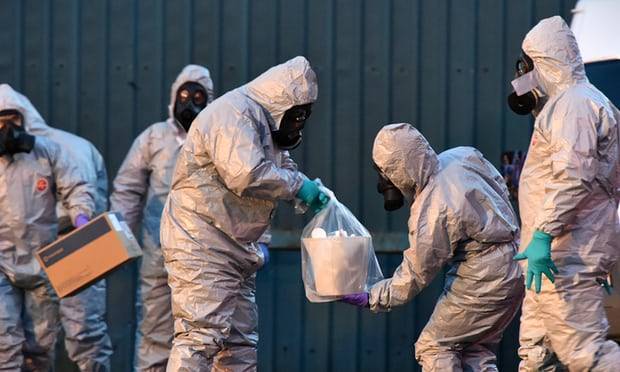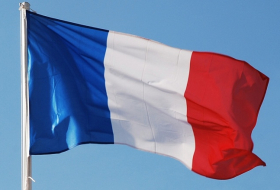The state department said the new sanctions would come into effect on 22 August and would be followed by much more sweeping measures, such as suspending diplomatic relations and revoking Aeroflot landing rights, if Russia did not take “remedial” action within 90 days.
Moscow is not expected to agree to the response required by US legislation, which includes opening up Russian scientific and security facilities to international inspections to assess whether it is producing chemical and biological weapons in violation of international law.
“Certainly is really up to Russia to make that decision, whether they meet this criteria,” a senior administration official said. “The second round of sanctions … are in general more draconian than the first round.”
The US has already expelled 60 suspected Russian spies as part of a global response to the March attack in Salisbury against Sergei Skripal, a former colonel in Russian military intelligence, and his daughter, Yulia, in which a rare and potent Russian-made nerve agent, novichok, was found to have been used.
The Kremlin has vehemently denied British accusations that it orchestrated the attacks. Since the March attack, two other residents from the Salisbury area have been poisoned by exposure to novichok.
Dawn Sturgess died in July after handling a small bottle contaminated with the nerve agent on 30 June. Her partner, Charlie Rowley, was also taken ill after being exposed to the nerve agent.
The new sanctions involve the export of a long list of equipment deemed to be sensitive on national security grounds, including gas turbine engines, integrated circuits, and calibration equipment used in avionics. A US official said that about half of US exports to Russia contained sensitive components. At the moment, such exports are considered on a case-by-case basis. After 22 August, there will be a “presumption of denial”, meaning that the default position will be for such exports to be banned.
“We are applying these sanctions against essentially all Russian state-owned or state-funded enterprises. That’s potentially a very great sweep of the Russian economy in terms of the potentially affected end users,” a senior official said. “It may be that something on the order of 70% of their economy and maybe 40% of their workforce falls within those enterprises.”
The official said the value of the affected exports could run to “hundreds of millions of dollars”.
The administration has signalled, however, that it intends to grant exemptions for foreign assistance, cooperation on space projects and aviation safety.
The senior official would not say if new intelligence had triggered the sanctions, but they come at a time when UK authorities appear to be making progress in the investigation. As the Guardian revealed this week, the British government is poised to submit an extradition request to Moscow for two Russians suspected of carrying out the Salisbury attack.
A British government spokesman welcomed Washington’s announcement, saying: “The strong international response to the use of a chemical weapon on the streets of Salisbury sends an unequivocal message to Russia that its provocative, reckless behavior will not go unchallenged.”
The new sanctions are mandated under the Chemical and Biological Weapons (CBW) Control and Warfare Elimination Act. If Russia does not meet the act’s 90-day deadline to renounce chemical and biological weapon use and provide access to inspectors, the president is obliged to impose far broader sanctions affecting diplomatic relations, general trade with Russia, bank loans and landing rights for Aeroflot.
That deadline, which is likely to be a critical test of Trump’s Russia policy, will fall close to congressional elections that are critical to the future of the administration.
State department officials said that the US consulted allies on its decision, and informed Moscow of its intention on Wednesday, shortly before the announcement.
The new measures are the latest in a string of instances in which the Russia policy of the Trump administration as a whole appears tougher than the president’s personal approach – illustrated vividly in his July summit with Vladimir Putin in Helsinki, where he appeared to give the Russian leader the benefit of the doubt over US intelligence agencies about Moscow’s interference in the 2016 US presidential election.
The state department missed a congressional deadline to impose the sanctions by more than a month, but a senior administration official denied the delay was due to disagreements within the administration.
“This is not about different bits of the administration going in different directions. We are all one administration and we’re all on the same page here,” the official said. “The state department is part of the administration, and this is all part of an overall approach that’s quite consistent. We are tough on Russia and at the same time we’re quite committed to working to maintain relations because there are important things at stake here.”
More about: #US
















































